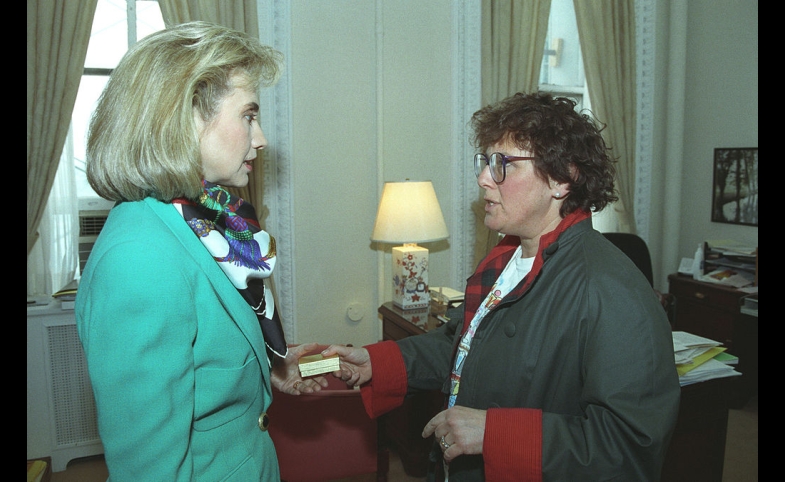An extraordinary conference on one of the most important and troubling phenomena of international communication and politics took place last month in Washington D.C. The phenomenon — Russian official propaganda...
KEEP READINGThe CPD Blog is intended to stimulate dialog among scholars and practitioners from around the world in the public diplomacy sphere. The opinions represented here are the authors' own and do not necessarily reflect CPD's views. For blogger guidelines, click here.

Remembering Evelyn Lieberman (1944-2015)
It is sad to learn of the recent passing of Evelyn Lieberman, one of the great women of U.S. public diplomacy. Lieberman brought energy and integrity to Bill Clinton’s second administration in the first instance as his director of Voice of America and then, following the consolidation of USIA into the State Department in 1999, as the first person to hold the new post of Under Secretary of State for Public Diplomacy and Public Affairs.
Born in 1944, Lieberman grew up in New York as the grandchild of Jewish immigrants from Russia. She remarked that she never had difficulty imagining VOA’s audience. She moved from an early career as a teacher to work in the NGO sector before joining the Clinton White House. As VOA director (succeeding USC’s own Geoff Cowan) she will be remembered for a readiness to take on difficult decisions at a time of adjustment for international broadcasting. Her rolling news format ‘VOA News Now’ was much disliked internally (staffers scoffed at VOA News “now and then”) but she understood the need for the network to change with the times. At the State Department, she faced the tremendously difficult task of developing a role for her new position when the Department’s reins of power manifestly bypassed her office. While much oversight of PD operations remained with the geographic bureaus, she worked hard to keep PD on the agenda. Lieberman was often frustrated from within the department and from the White House. Her plan for a massive White House conference to re-launch U.S. cultural diplomacy for the new century was so delayed that it didn’t happen until after the 2000 election and probably served as a disincentive to the next administration picking up the cause. She was at least pleased that ‘on her watch’ she was able to shepherd a number of senior USIA Foreign Service Officers into ambassadorial posts.
Despite her public diplomacy work -- and later service as spokesperson for the Smithsonian -- she will doubtless be remembered by history as Clinton’s deputy chief of staff and therefore one of the supporting players in the drama of Monica-gate. Monica Lewinsky referred to her as one of the ‘meanies’ who, sensing trouble, attempted to steer her away from the president. To Lieberman’s credit when the scandal broke during her time as VOA director, she insisted on them providing unflinching coverage. VOA’s version of Monica-gate focused on the legal process and avoided the kind of speculation that so often dominated domestic news coverage, reflecting the best traditions of VOA broadcasting.
She was fun to meet: frank, energetic, insightful and engaging. She will be missed.
Editor's note: For more on Lieberman’s time in office see Professor Cull’s 2012 monograph, The Decline and Fall of the United States Information Agency: American Public Diplomacy, 1989-2001.
Photo courtesy of White House Photograph Office - Clinton Presidential Library.
Visit CPD's Online Library
Explore CPD's vast online database featuring the latest books, articles, speeches and information on international organizations dedicated to public diplomacy.
POPULAR ARTICLES
-
January 29
-
January 20
-
December 17
-
January 28
-
January 2
Join the Conversation
Interested in contributing to the CPD Blog? We welcome your posts. Read our guidelines and find out how you can submit blogs and photo essays >.













